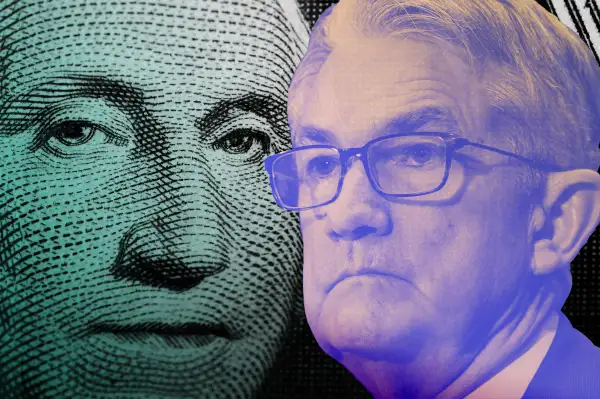Interest Rates for High-Yield Savings Accounts Probably Won't Bounce Back 'for the Foreseeable Future'

Remember summer 2019? James Holzhauer finally lost on Jeopardy!, U.K. Prime Minister Theresa May resigned, and interest rates on many high-yield savings accounts sat comfortably above 2%.
A year later, the world looks a lot different. The U.S. is in a recession, small businesses are struggling to recover from the coronavirus crisis, and online banks have slashed annual percentage yields to nearly 1%.
Ally, which provides banking services to over 2 million people, announced to customers in an email last week that it was decreasing the APY for its online savings accounts from 1.25% to 1.1%. Last month, the Goldman Sachs-owned brand Marcus took its APY from 1.55% to 1.3%. SFGI Direct's rates went from 1.86% in March to 1.36% in June.
For years, online banks have boasted about their high interest rates, which they're able to offer by sidestepping many of the overhead costs associated with brick-and-mortar locations. But those rates are shrinking fast. High-yield savings accounts aren't so high-yield right now, and that might be unwelcome news for the socially distanced Americans who are saving more than ever.
Here's what's happening to interest rates on online savings accounts — and whether they'll bounce back soon.
Why are interest rates dropping?
Anand Talwar, deposits and consumer strategy executive for Ally Bank, tells Money that rates are determined "by a bunch of factors," including market conditions, the economy and competition.
They are largely influenced by the Federal Reserve, which sets the federal funds rate at which banks lend money to each other overnight. When the economy is strong, the rate is high, and the inverse is true when the economy is weak (like it is right now). The Fed reduced the interest rate in March, and projections that dropped last week indicated rates will stay around 0 until 2022.
"This was an attempt to help rebuild economic damages caused by the coronavirus," says Brandon Goldstein, a financial planner for Prudential Financial. "These low interest rates encourage people to spend and put money back into our economy."
Financial institutions tend to follow the Fed's lead. As Talwar puts it, "Every time we change rates — up or down — we take the above factors into account."
Are online savings account rates going to rebound?
Because banks look so closely to the Fed for guidance, they probably won't raise rates until the Fed does. And that could be a long way off. Chairman Jerome Powell told reporters last week he's "not even thinking about thinking about raising rates."
"The Federal Reserve will likely wait until the economy is close to normal before they increase the rates again," Goldstein says. "For the foreseeable future, I don't anticipate these savings account rates to rise."
It's not all bad news. Talwar points out that even the 1.1% rate is over 15 times higher than the national average, which according to the FDIC is 0.06%.
How can you make the best of the situation?
Just because you're not earning much in interest doesn't mean you shouldn't save, says Marguerita Cheng, the CEO of Blue Ocean Global Wealth and an ambassador of the CFP Board.
Upon receiving an email that your APY has dropped, she says your first move should be to look into what other products and services the online bank offers. If you're all right with a bigger minimum balance and limited deposits, maybe you could find a money market account with a favorable interest rate. (Cheng says you may want to avoid pursuing a certificate of deposit, or CD, that would tie money up for years at today's unimpressive rates.)
Goldstein says you may also want to shop around and see if a competitor offers a better APY. You don't have to keep your savings online, either: Cheng suggests checking into community banks and credit unions.
From there, consider the other parts of your portfolio. The rates may be discouraging for supersavers, but they may benefit home and car buyers. Can you use the low rates to refinance your mortgage? Can you eliminate some credit card debt? You have several options that can still save you money in the long run.
"Your financial plan isn't not going to work because the Fed cut interest rates," Cheng says. "There are things you can do."
More from Money:
The Best High Yield Savings Accounts Right Now
The Coronavirus Outbreak Is Highlighting the Importance of Emergency Funds
